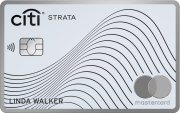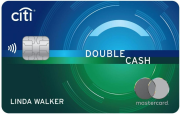The content on this page is accurate as of the posting date; however, some of the offers mentioned may have expired.

Who do you think benefits most from the Federal Reserve's campaign on cutting the interest rates? Evidently, not the card providers whose most credit cards are issued on a variable rate basis. Why? Because as long as the Federal Reserve continues to reduce the prime rate, companies will have to follow and it is obligatory for them.
However, when a card is based on a fixed rate, it becomes easier to keep the rate at a profit-yielding level as the companies can legally set and regulate it themselves. Federal Reserve's policy has prompted Capital One Financial Corp. to switch some of its variable rate cards onto a fixed rate basis so that the bank could preserve its revenues.
Capital One is not the only card issuer that has resorted to the rate switching in hope of preserving their profit margins. If the Federal Reserve persists in its campaign, lots of new bank customers are certain to be offered tougher fixed rates self-determined by card providers.
Considering that some of Capital One's fixed rates are usually higher than variable, a customer might have a hard time making the application decision. On the other hand, why not agree onto a fixed rate when it might be such a great rescue in case the Federal Reserve decides to increase back the interest?
As it is known, fixed rates are not anyhow tied to the prime rate and are under total control of credit card companies.
That is where the problem lies. The article titled "Know the Go Rate on Your Credit Card Application" gives an easy explanation on why it is actually not that crucial whether you choose for a fixed or variable rate.
Suppose you choose to apply for one of Capital One's variable rate credit cards. By the way, as noted by the bank's spokeswoman, Capital One still has plenty of variable rates on offer. There is no guarantee that the Federal Reserve won't withdraw the campaign and the rate won't double as soon as the economy recovers.
Variant two. You opt for stability and get yourself a fixed rate plastic. It promises to be twice as beneficial if your good credit history allows you to have a really low rate like 9.99% or even lower. But it is not the case with Capital One. After shifting part of its cards to the fixed rate basis, the rate has become equally higher for bad and good credit customers.
It becomes possible due to the provision that credit companies reserve the right to change the interest any time for any reason.
So, you are free to decide which rate you prefer but anyway, the rate is manipulated by banks. Consider the following: when the prime rate goes down, companies move to the fixed rate basis so as to slow down the adoption of lower interest. When the prime rate is raised, card issuers turn back to variable rates, which allow them to boost the rate on their customer's cards legally.
Credit card rates switching is inevitable as long as banks seek profit but they always will. Also, you can't be sure that a fixed rate is better than variable and vice versa as both will work to make revenues for the banks.
All you need to do is to be responsible and moderate about credit card spending. Then, the little tricks of credit companies will not really affect you.






